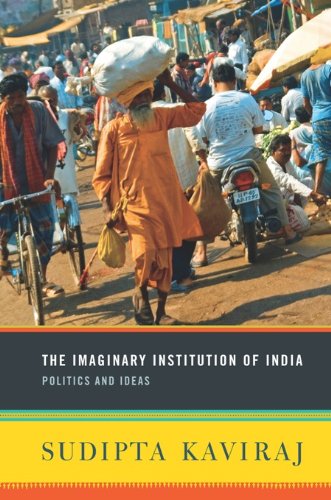Sudipta Kavirajs brilliance as a political thinker, the front flap of the book claims, has remained something of a state secret for the fact that his publications are scattered in journals difficult to access. The Imaginary Institution of India, the first book in a trilogy of Kavirajs works, is thus a step towards dejournalizing Kaviraj. For a political thinker whose writings explicitly endorse a project of engineering a surreptitious, yet remarkable, displacement of any understanding of a coherent, singular, doctrinal idea of India, it is only fitting that his works are revealed in the larger, more plural public space. In eight insightful essays, written over the past two and a half decades, Kaviraj approaches the subjectthe Indian nationwith a passion for critical inquiry. The book makes no pretence of the fact that the field of inquiry is extremely complex; in his own words it is evolving, unstable, volatile, capable of sudden shifts in emphasis and political direction (p.7).
This complexity, however, is an opportunity wasted by the writers of Indian history and politics who have tried to approach the past with presentist lenses and have in turn misrecognized, misrepresented and misconstrued it. His critical lenses also chastise Marxist interpretations for their economic-centric material reading of history, and he posits, in a more Gramscian vein, that changes in the politico-cultural domain are equally, if not more, important.

